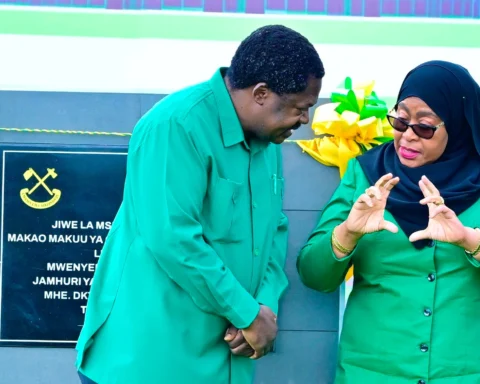The government has voiced growing concern over the rising number of divorce cases across Tanzania, urging families, marriage institutions, and community leaders to help strengthen the foundation of relationships through values-based education and counseling.
Speaking in Parliament during the presentation of the 2025/2026 budget estimates for the Ministry of Constitutional and Legal Affairs, Minister Dr. Damas Ndumbaro highlighted the need for collective intervention to curb the trend. He revealed that between July 2024 and April 2025, the Registration, Insolvency and Trusteeship Agency (RITA) issued 675 divorce certificates—well above the agency’s annual target of 583, marking a 116% increase.
“This is not just a statistic—it reflects real families, real heartbreak, and children whose lives are disrupted,” said Dr. Ndumbaro. “We must all come together—parents, guardians, and those officiating marriages—to nurture stronger, more resilient unions.”
The minister stressed that while marriage remains an important institution in Tanzanian society, many couples are increasingly struggling with the demands of married life. He noted that moral and emotional guidance is often missing, especially for young couples entering marriage without adequate preparation or support.
During the same period, RITA registered 35,052 marriage returns, equivalent to 65% of the annual target of 54,167. Although marriages are still being formed at a steady pace, the parallel spike in divorce filings raises questions about the longevity and stability of these unions.
Dr. Ndumbaro emphasized the importance of promoting a culture of communication and patience between spouses, rather than resorting to separation as the first option when conflicts arise. He also called for more widespread access to counseling and family education, particularly in communities where social and economic pressures can take a heavy toll on relationships.
Also Read; Ghana Surpasses SA To Become Africa’s Leading Gold Producer
Social observers have pointed out that modern pressures—such as financial insecurity, shifting cultural expectations, and lack of conflict resolution skills—are straining marriages more than ever before. The minister’s remarks reflected a growing realization that legal measures alone are not enough to protect the family unit.
“Families are the building blocks of our nation,” Dr. Ndumbaro said. “When they break down, the effects ripple far beyond the home.”
As part of broader efforts, the government is expected to work with faith-based organizations, community leaders, and civil society to support relationship education and develop new tools to help couples weather challenges.
At the heart of the issue, officials say, is the need to rekindle empathy, respect, and mutual understanding—qualities that can’t be legislated but must be nurtured within every home.







Pride goes before fall….Divorce happens mainly because of pride and poverty